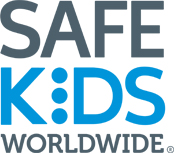Most Parents Know to Store Medicine Safely, Yet Every Ten Minutes a Child
Goes to the ER for Medicine Poisoning
Washington, D.C. – A new research report, Medicine Safety: A Key Part of Child-Proofing Your Home, released today by Safe Kids Worldwide, finds that while many parents know to “store” their medicine in a safe location, they are not considering the many places in the home where they “keep” medicine. Unknowingly, this disconnect creates opportunities for young children to access potentially harmful medicine.
While education efforts are indeed having a positive impact – the number of ER visits for children under the age of 6 who got into medicine decreased by 32 percent, and the number of calls to Poison Control Centers decreased by 20 percent – too many children still get into medicine. Every day 142 children under age 6 are being seen at emergency rooms after getting into medicine. That’s one child every ten minutes. This new report reviews trends in medicine poisoning for children and reveals findings from recent focus groups with parents of children under age 6. It uncovers insights into why so many children are still getting into medicine when most parents believe they are storing medicine safely.
Read the report and infographic.
WHY ARE SO MANY KIDS STILL GETTING INTO MEDICINE?
Parents feel that they know their children well, yet they are frequently surprised by the pace of their child’s development. Parents child-proof their homes according to their child’s ability at a certain time, not in anticipation of what their child might do in the future. For example, when they see that their child can crawl, they install safety gates at the top and bottom of stairs. Not beforehand.
Further, parents are not thinking of medicine safety as a top priority when they first child-proof their homes, because many believe that they are already storing medicine in safe places such as a medicine cabinet or a closet. This mindset (“I’m already doing that”) contributes to a lack of awareness and vigilance around the everyday types of medicine, like pain relievers or antibiotics, which parents often keep in convenient locations such as a purse or diaper bag.
An even closer look at parents’ behavior suggests a difference between where they “store” medicine and where they “keep” medicine. Parents from our focus groups reported “storing” certain medicines up and away, and out of sight; at the same time, they admitted to “keeping” more frequently used medicines in convenient locations such as purses, nightstands or counters, but did not consider those locations when asked about safe storage. This disconnect indicates many parents don’t fully consider where they keep medicine and the risks posed to children when it’s easily accessible. When parents underestimate their child’s abilities and lose track of all the places where they keep medicine, their child is at greater risk of getting into medicine.
“It’s easy to look at your beautiful, newborn baby and think that he’s not going anywhere anytime soon; believing you still have plenty of time to child-proof your home,” said Torine Creppy, President of Safe Kids Worldwide. “But we’ve learned from our research that parents are all too often surprised by how quickly their babies grow and change. That’s why it’s so important to start life-saving habits, like safe medicine storage, well before your baby is on the move.”
QUICK TIPS TO HELP PARENTS
- Keep medicine and vitamins out of children’s reach and sight, even medicine you take every day. Think about places you store medicine you don’t use regularly, as well as places you keep medicine that you use more often. Children often find medicine kept in purses or on counters and nightstands, so it is important to put medicine in cabinets at or above counter height, even if you need to take another dose in a few hours. Keep all bags or briefcases on high shelves or hang them on hooks where your child can’t reach them.
- Add medicine safety to your initial child-proofing checklist. As you create a safer home environment for your child to grow and explore, it’s important to add medicine safety to your list along with installing safety gates and cabinet locks, anchoring furniture, mounting TVs, and putting poisonous products up and away. As your child learns new skills and becomes more mobile, anticipate that you may need to change where you keep medicine to avoid alarming surprises.
- Save the Poison Help number in your phone and post it visibly at home: 1-800-222-1222. Specialists at poison control centers provide free, confidential, expert medical advice 24 hours a day. They can answer questions about how to give or take medicine and help with poison emergencies.
- Share medicine safety information with family and friends. Teach other caregivers such as family members, babysitters and friends about medicine safety and make sure they know the Poison Help number.
More tips for families can be found in the medicine safety checklist and tip card.
For more medicine safety tips, visit safekids.org. National Poison Prevention Week is March 17-23, 2019.
Download the report and infographic created by Safe Kids Worldwide with support from Johnson & Johnson Consumer Inc.
ABOUT SAFE KIDS WORLDWIDE
Safe Kids Worldwide is a nonprofit organization working to protect kids on the road, at home and at play. Preventable injuries are the number one cause of death for children in the United States. Throughout the world, almost one million children die of an injury each year, and almost every one of these tragedies is preventable. Safe Kids works with an extensive network of more than 400 coalitions in the U.S. and with partners in more than 30 countries to reduce traffic injuries, drownings, falls, burns, poisonings and more. Since 1988, Safe Kids has helped reduce the U.S. childhood death rate from unintentional injury by 60 percent. Working together, we can do much more to protect kids. Join our effort at safekids.org.
MEDIA CONTACT
Susan Reilly
Safe Kids Worldwide
[email protected]
202.662.4476
